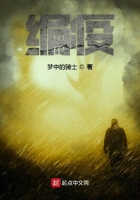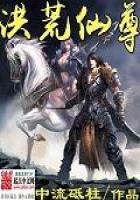"Not a bit. But it's damned beastly while it lasts. You'll be all right when we move. Don't forget to take your fur coat up if you've got one. We shall have a cold night."Just after sunset they set out, marching in the gathering dusk down the road eastwards, where in a mile or two they would strike the huge rabbit warren of trenches that joined the French line to the north and south. Once or twice they had to open out and go by the margin of the road to let ambulances or commissariat wagon go by, but there was but little traffic here, as the main lines of communication lay on other roads. High above them, scarcely visible in the dusk, an English aeroplane droned back from its reconnaissance, and once there was the order given to scatter over the fields as a German Taube passed across them. This caused much laughter and chaff among the men, and Michael heard one say, "Dove they call it, do they? I'd like to make a pigeon-pie of them doves." Soon they scrambled back on to the road again, and the interminable "Tipperary" was resumed, in whistle and song. Michael remembered how Aunt Barbara had heard it at a music-hall, and had spoken of it as a new and catchy tune which you could carry away with you. Nowadays, it carried you away. It had become the audible soul of the British army.
The trench which Michael's company were to occupy for the next forty-eight hours was in the first firing-line, and to reach it they had to pass in single file up a mile of communication trenches, from which on all sides, like a vast rabbit warren, there opened out other galleries and passages that led to different parts of this net-work of the lines. It ran not in a straight line but in short sections with angles intervening, so under no circumstances could any considerable length of it be enfiladed, and was lit here and there by little oil lamps placed in embrasures in one or other wall of it, or for some distance at a time it was dark except for the vague twilight of the cloudy sky overhead. Then again, as they approached the firing-line, it would suddenly become intensely bright, when from the English lines, or from those of the Germans which lay not more than two hundred yards in front of them, a fireball or star-shell was sent up, that caused everything it shone upon to leap into vivid illumination. Usually, when this happened, there came from one side or the other a volley of rifle shots, that sounded like the crack of stock-whips, and once or twice a bullet passed over their heads with the buzz as of some vicious stinging insect. Here and there, where the bottom lay in soft and clayey soil, they walked through mud that came half-way up to the knee, and each foot had to be lifted with an effort, and was set free with a smacking suck. Elsewhere, if the ground was gravelly, the rain which for two days previously had been incessant, had drained off, and the going was easy. But whether the path lay over dry or soft places the air was sick with some stale odour which the breeze that swept across the lines from the south-east could not carry away. There was a perpetual pervading reek that flowed along from the entrance of trenches to right and left, that reminded Michael of the smell of a football scrimmage on a wet day, laden with the odours of sweat and dripping clothes, and something deadlier and more acrid. Sometimes they passed under a section covered in with boards, over which the earth and clods of turf had been replaced, so that reconnoitring aeroplanes should not so easily spy it out, and here from dark excavations the smell hung overpoweringly. Now and then the ground over which they passed yielded uneasily to the foot, where lay, only lightly covered over, some corpse which it had been impossible to remove, and from time to time they passed a huddled bundle of khaki not yet taken away.
But except for the artillery duel that day they had heard going on that morning, the last day or two had been quiet, and the wounded had all been got out, and for the most part the dead also.
After a long tramp in this communication trench they made a sharp turn to the right, and entered that which they were going to hold for the next forty-eight hours. Here they relieved the regiment that had occupied it till now, who filed out as they came in.
Along it at intervals were excavations dug out in the side, some propped up with boards and posts, others, where the ground was of sufficiently holding character, just scooped out. In front, towards the German lines ran a parapet of excavated earth, with occasional peep-holes bored in it, so that the sentry going his rounds could look out and see if there was any sign of movement from opposite without showing his head above the entrenchment. But even this was a matter of some risk, since the enemy had located these peep-holes, and from time to time fired a shot from a fixed rifle that came straight through them and buried its bullet in the hinder wall of the trench. Other spy-holes were therefore being made, but these were not yet finished, and for the present till they were dug, it was necessary to use the old ones. The trench, like all the others, was excavated in short, zigzag lengths, so that no point, either to right or left, commanded more than a score of yards of it.















